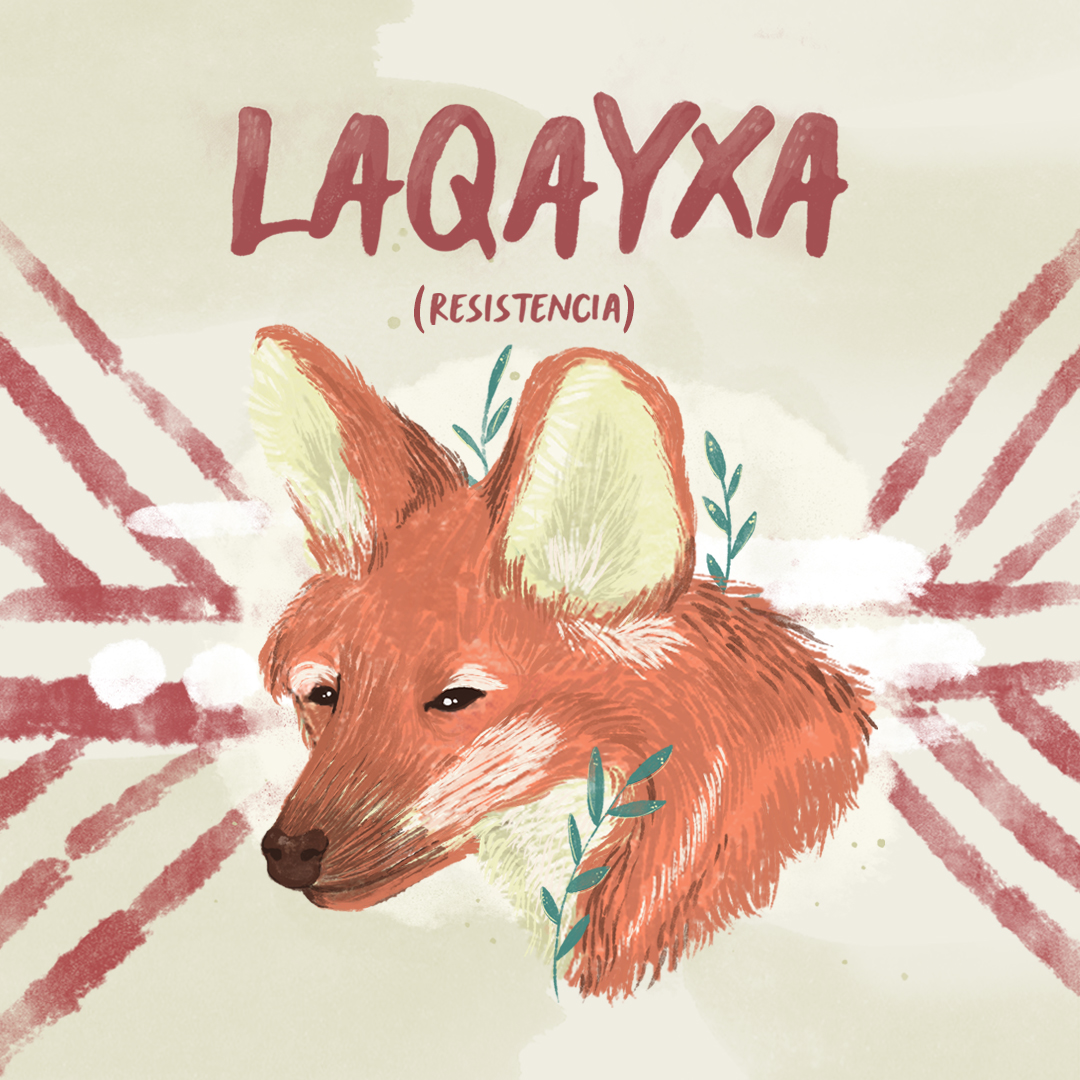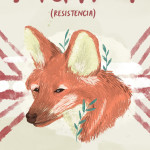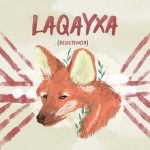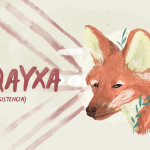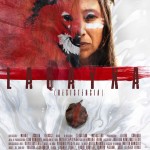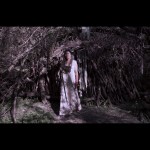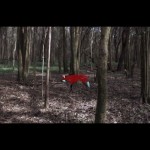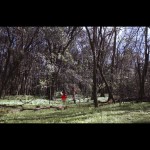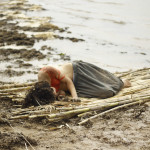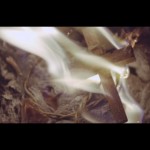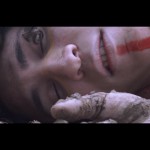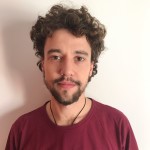Resistencia / Resistance
– Technical Info / Información Técnica:
(2020) / 00:16:00 / Sony A7s II / 24fps / 16:9 / Color / PAL / Stereo / Drama, Ecology, Environmental / Graduation Thesis / Santa Fé, Argentina
– Short Synopsis / Sinopsis Corta:
To save the last seed, the Healer calls Antü, a magical being with the power of traveling across time. What challenges will Antü face?
Para salvar la última semilla, la Curandera llama a Antü, un ser con el poder de viajar en el tiempo. ¿Con qué se encontrará Antü?
– Synopsis / Sinopsis:
In ancient times, in the lands of the argentine Litoral, a plague comes to decimate all living things. The HEALER cures the wounds of those who come looking for help with the seeds of a tree in danger of extinction because of the plague. With her last seed, the HEALER asks the nature for help. As a result, ANTÜ is born: a magical being who can travel across time. ANTÜ travels in time with the purpose of planting the seed and thus, heal the bond between man and nature. What challenges will ANTÜ face?
En tiempos lejanos, en zonas del litoral argentino, una peste llega para diezmar todo lo vivo. La CURANDERA sana las heridas de quienes se acercan en busca de su ayuda con las semillas de un árbol que, debido a la peste, corre peligro de extinción. La CURANDERA, ya con su última semilla, le pide ayuda a la naturaleza. En respuesta nace ANTÜ, un ser mágico con el poder de viajar en el tiempo. ANTÜ viaja al futuro con el objetivo de sembrar la semilla y así sanar el vínculo del hombre con lo natural. ¿Con qué se encontrará ANTÜ?
– Director´s Biography / Biografía del Director:
MANUEL ACOSTA BELUCCI
He is a Superior Technician in Cinema and Audiovisual Arts (ISCAA Santa Fe). He completed the high school at Prof. Juan Mantovani with orientation in audiovisual media (Film, Video, Animation, and Photography). He gave workshops in various cultural public and private spaces, for children and adults. After experiencing 5 years at ISCAA, moving through diverse genres from experimental, to animation, documentary, and fiction; He worked for companies doing advertising spots, video clips for bands, spots for plays, kinder gardens, among other items. He worked making audiovisual backstages in some of the city’s realizations. Part of the STAFF of the International Animated Film Festival «El Ventilador», which has already made its 4th edition (2018). He made a short film as a Screenwriter and Director recently released («Laqayxa» – 16 min). He worked as 2nd Assistant Director in «ANIMALIA» (TV fiction series – 4 CAP – for INCAA TV).
Es Técnico Superior en Cine y Artes Audiovisuales (ISCAA Santa Fe). Realizó el bachillerato secundario en la Escuela Prof. Juan Mantovani con orientación en medios audiovisuales (Cine, Video, Animación y Fotografía). Dictó talleres en diversos espacios culturales tanto públicos como privados para niños y adultos. Luego de experimentar 5 años de carrera en el ISCAA, transitando por diversos géneros desde el experimental, hasta la animación, el documental y la ficción; trabajó para empresas realizando spots publicitarios, videoclips para bandas musicales, spots para obras de teatro, jardines, entre otros rubros. Trabajó realizando backstages audiovisuales en algunas realizaciones de la ciudad. Parte del STAFF del Festival Internacional de Cine de Animación “El Ventilador”, que ya realizó su 4ª edición (2018). Realizó un cortometraje como Guionista y Director recientemente estrenado (“Laqayxa” – 16 min). Trabajó como 2do Asistente de Dirección en “ANIMALIA” (serie TV ficción – 4 CAP. – para INCAA TV).
– Director’s Statement / Declaraciones del Director:
“If we ever become speechless, it would be better that it happened because we are amazed and not because we are empty…” Liliana Bodoc
Nothing compares to the wise words of a woman whom I admire a lot, a profound Argentine writer born in my hometown. Thanks to Liliana I became immersed in the deep sea of indigenous Latin American tales filled with features from our lands. With her literature, she planted a seed in me (and before that, my mother Alicia did, as she introduced me to Liliana). Personally, I address projects without previous knowledge and empathy at the same time: if I don’t know anything about a subject, I start investigating, reading, writing, listening, and talking to people about it, so I can immerse in this “deep and endless sea”, which is an idea proposed by David Lynch in his book Catching the Big Fish. Lynch suggests that “the most private and original ideas are found in our deepest selves, not on the surface. It’s necessary to look into this depth and face ourselves”. It’s from that place that Lynch, and many others, try to fish for ideas. Never before I have felt so reflected and present in a story written by me. What´s coming out of the water it’s a struggle that I carry on with my body and life: I have spent years studying human relations and bonds between people; I have worked on the horizontal relation of individuals and on collective productions. In fact, this last concept it´s the reason for which I decided to become a filmmaker: filmmaking is essentially a collective art. As this project was about ancient cultures, indigenous people, our lands, and about taking a stand and talking about past times, it was difficult for me not to become passionate about investigating bibliography and infographics related to indigenous people, and the political issues related to the subject. I don’t mean to distort history or murder time. I don’t want to mock spectators either. I just want to narrate- from a different perspective- something that happened. But that’s not all: I also hope that this helps us reinterpret our present context. Casting lasted more than 1 (one) year and I was obsessed with finding people who had inherited indigenous features. Unfortunately, we couldn’t find them. Those who actually approached us gave up the moment they read the script or when they found themselves in front of the camera. Naturally, this came as a low blow for us, but it didn´t prevent us from making our movie. I don’t want to focus on what it means for us to work with non-professional actors, but I do want to clarify that this became an advantage for us. What I´d like to say about them, is that displaced people are the inspiration behind this film. This also poses a challenge: if we fail, we fail for good. Nevertheless, this brings us back to excitement: our entire team will sacrifice to vigorously carry out this project in the best way possible. We celebrate, but we also take advantage of these types of spaces, of these incentive wages and/or support to a culture that is given to groups for collective productions. I believe that this is just another way of communicating (the production of works of art), and we firmly believe that these kinds of proposals should be encouraged. By generating work, ties between people, works of arts, places to meet, good times and access to information, you give but you also get. This goes hand by hand with the fact that we love making films. I think that this opportunity is as beautiful as it is complex, as profound as it is noble, and everyone who is involved in this project, will fully experience it as a way of learning. It’s safe to say that I’m very happy, and I feel very comfortable working with my team, which motivates me even more.
«Si alguna vez nos toca quedarnos sin palabras, es bueno que sea porque estamos maravillados y no porque estamos vacíos…» Liliana Bodoc
Nada como estas sabias palabras de una mujer a la que admiro mucho, profunda escritora argentina nacida en mi ciudad, gracias a la cual comencé a introducirme en este mar tan espeso, que es el de las leyendas autóctonas latinoamericanas, con características bien de nuestra tierra. La semilla en mí la sembró Liliana con su literatura (y antes Alicia, mi madre, por traerme a Liliana; obviamente). Personalmente encaro los proyectos por desconocimiento y empatía al mismo tiempo: si hay algún tema del que no conozco absolutamente nada, entonces decido tirarme de cabeza a investigar, leer, escribir, escuchar, hablar con personas sobre el tema y así ir introduciéndome en este “profundo e infinito océano” (idea de la que habla Lynch en su libro Atrapa al Pez Dorado, cuando se le ocurre pensar cosas como “las ideas más personalmente originales se encuentran en lo profundo de cada uno de nosotros, no en la superficie. Es necesario mirarse hasta lo profundo, enfrentarse a uno mismo”). Desde ahí, Lynch, y muchos otros, intentamos pescar ideas. Nunca antes me pasó de sentirme tan identificado y representado por una historia escrita por mí. Esto que está saliendo del agua es una lucha que llevo adelante con mi cuerpo y mi vida, son años de estudiar las relaciones sociales, los lazos, trabajar la horizontalidad entre los individuos y las realizaciones colectivas (de hecho por esto último me decidí a hacer cine, porque es, por naturaleza, un arte grupal). De tratarse de culturas ancestrales, de pueblos originarios, de nuestra tierra, de tomar una postura y hablar sobre un tiempo que ya pasó, cómo no quedar pegado a la idea de investigar bibliografía e infografía sobre pueblos originarios y todo tipo de políticas sobre el tema. Mi idea no es querer tergiversar la historia ni asesinar al tiempo. Tampoco burlar al espectador. Sólo contar, desde otro lugar, algo que sucedió; pero que no nos deje con eso, si no, que sirva para hacer una relectura de los contextos actuales. El casting duró más de 1 (un) año; yo estaba muy empecinado en encontrar personas de rasgos heredados directamente de los pueblos originarios, cosa que nunca conseguimos encontrar. Los que se animaban a acercarse desistían cuando leían el guion o cuando se encontraban frente a cámara. Lo cual para nosotros fue un golpe, pero no fue razón para dejar de hacer nuestra película. No me gustaría hacer tanto hincapié de lo que puede llegar a significar trabajar con actores no profesionales, más bien, sólo aclarar de que esto mismo para nosotros es una ventaja. Lo que sí me gustaría decir es que ellos, los pueblos desplazados, son los motivos de nuestra inspiración para llevar a cabo el film. Al mismo tiempo es un desafío: si fallamos, fallamos para siempre. Esto nos lleva de vuelta al entusiasmo: todo el equipo se sacrificará para llevar, con todas las energías, este proyecto delante de la mejor manera. Celebramos y aprovechamos este tipo espacios, de asignaciones estímulos y/o apoyos a la cultura en general que se puedan llegar a dar y concursar a grupos de realizaciones grupales y colectivas. Desde mi punto de vista, es una forma más de comunicarse entre las personas (la realización de obras de artes) y nos parece fundamental que se incentiven propuestas de este tipo. Generando trabajo, lazos entre las personas, obras, lugares de encuentro, buenos momentos, circulación de la información, se da y se recibe; siempre teniendo en cuenta que todos nosotros amamos lo que hacemos: en nuestro caso, el hecho de hacer cine. Considero que es una oportunidad tan difícil como hermosa, tan profunda como elevada, donde todos los que estamos –y vamos a estar– involucrados en el proyecto lo vamos a vivir como un aprendizaje en su totalidad. De más estaría decir que me siento muy contento y cómodo de trabajar con el equipo que llevamos este proyecto adelante, y esto me entusiasma aún más.
– Overview / Ficha técnica:
Script / Guión: Manuel Acosta Belucci
Producer / Producción: Eliana Córdoba
Productor Assistant / Asistente de Producción: Gina Bonfanti
Director / Director: Manuel Acosta Belucci
Director Assistant / Asistente de Dirección: Sebastián Manassero
Director of Photography and Camera / Dirección de Fotografía y Cámara: Milyer Sepulveda
Gaffer: Emanuel Erard
Art Director / Dirección de Arte: Olivia Gutiérrez
Animation / Animación: Leonardo Martín
Sound design / Diseño de sonido: Martín Domicoli
Editing / Montaje: Manuel Acosta Belucci
Cast / Elenco: Eugenia Suárez, Romina Pecorari, José Olivera Rivas, Pablo Routier, Mora Valencia, Marcos Bruzzone, María Susana Silvan
– Festivals, Awards and Nominations / Festivales, Premios y Nominaciones:
– 20 ECU Festival Internacional De Escuelas De Cine de Uruguay; 08/2020; Uruguay
– Links:
Trailer: https://vimeo.com/313843153
– Contact / Contacto:
Gisela Chicolino
FilmsToFestivals Distribution Agency
PRIMER CORTE PRODUCCIONES
Gina Bonfanti
www.instagram/primercorte.film
Instituto Superior de Cine y Artes Audiovisuales de Santa Fe (I.S.C.A.A.)
San Jerónimo 1868
0342 458-9458
Provincia de Santa Fe, Santa Fe.
